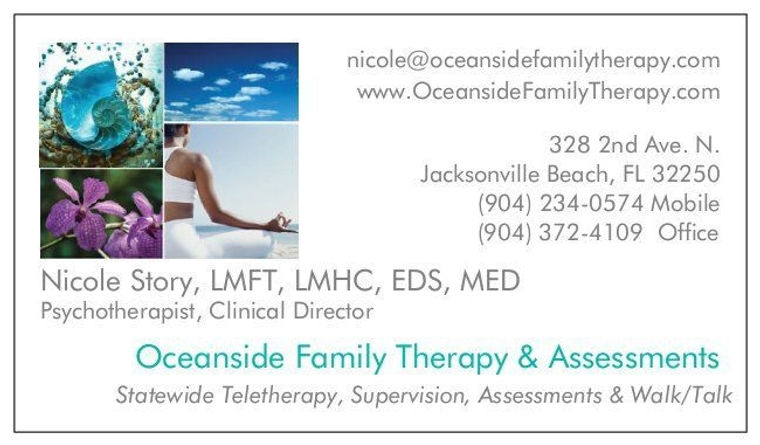
Box Breathing Exercise
Yoga Therapy &
Mindfulness Meditation
- for Walk & Talk Therapy or
Teletherapy
Mindfulness Meditation, also known as Yoga Therapy for emotional health, integrates neuroscience and physiology in experiential interventions to reduce overactive parasympathetic nervous system functioning.
Specifically useful for both adults and children suffering from stress, anxiety, depression, phobias, OCD, PTSD, ADHD, insomnia, eating disorders, body image issues, addiction and many other symptoms.
Since the Covid-19 pandemic, we are becoming more aware of our health, our mental health and ways to strengthen and maintain our immune system, and even to find balance in our work, family, social and personal lives.
We have tailored traditional talk therapy to Teletherapy and recently to Walk and Talk modalities to enhance our health and the health of our community. We realize that health for ourselves and our loved ones is a top priority.
"Yoga is for internal (mental) cleansing, not external exercising. Yoga means true self-knowledge." Pattabhi Jois
"When we have a calm mind and we are not distracted by the thoughts, the feelings, or the sensations; we can see ourselves in our true nature." Samadhi Pada
Through this practice we aim to let go of suffering, anxiety, depression, pain, inertia, addiction, distractibility, inadequacy, self-doubt, eating disorders, hoarding and feeling stuck. Through this practice we aim to identify and overcome limiting perceptions/judgements (about self and others) and to practice compassionate self-forgiveness.
Therapeutic yoga practices, like pranayama, chanting and gentle asana support healthy parasympathetic nervous system function, enabling us to transform negative thought processes and states of disease.
Incorporating texts like “Buddha’s Brain” by Rick Hanson, PH.D, which supports the major teachings from the Yoga Sutras, while diagramming how the brain actually can be re-wired through mind-body practices.
Learning the science behind the practices, grounds clients and patients and gives an understanding of ‘how yoga actually works.’
Yoga Therapy in this setting is complimentary and supportive of the individual's spirituality and personal religion (including western Christianity and others). Yoga Therapy is tailored for you, where you are, for your personal benefit and growth.
"When we are confronted with problems, the counsel of someone who has mastered such problems can be of great help - any inquiry of interest can calm the mind." - the Yoga Sutras of Patanjali
The Brain and Stress
The brain tends to react to discomfort and disorientation in an automatic way, by triggering the physiological stress response and activating anxious neural chatter between the prefrontal cortex and the more emotional limbic system.
The physiological stress response means an increase in heart rate, breathing rate, muscle tension and elevation of cortisol and other stress hormones.
Therefore, yoga therapy and mindfulness meditation can physiologically change the learned stress response, offering a balanced neurobiological approach to traditional "talk therapy."

Mantras are ancient forms of neurolinguistic programming that can profoundly transform the brain
on both an emotional and intellectual level. Mantras can also be understood as repetitive forms of linguistic meditation. In this way, Mantra yoga is yoga for the mind that uses intention to calm the mind and focus the attention. (MVP 200 YTT 2020)
This journal article from Frontiers in Human Neuroscience, published by the NCBI, National Library of Medicine, National Institutes of Health (2018) addresses how PVT (Polyvagal Theory) can be conceptualized as a neurophysiological counterpart to yogic concepts:Yoga Therapy and Polyvagal Theory: The Convergence of Traditional Wisdom and Contemporary Neuroscience for Self-Regulation and Resilience
Once these practices are learned, then under any stressful circumstance the same calming techniques can be practiced: breathing deeply and slowly, relaxing your facial muscles, clearing your head of anxious thoughts, focusing on the present.
In fact, applying these techniques to real life is what yoga is all about. Yoga & Mindfulness are simply the process of paying attention to the present moment and calming the mind. Over time clients can learn to start to retrain their automatic stress reactions, and replace them with one more conducive to happiness and overall well-being.
As the focus of Yoga Therapy and Mindfulness is primarily for emotional well-being, there is less focus on the physical exercises of yoga in the psychotherapy session.
Yoga Therapy and Mindfulness can also be added to Walk and Talk Therapy as outdoors provides an enhanced experience for mindfulness.
During the Covid-19 restrictions, Walk and Talk Therapy is now offered as an in person, mask optional, outdoor option instead of indoor therapy.
If you would like to add Yoga Therapy to your (or your child's) Walk and Talk Therapy, please let us know.
Mental Health and Overall Health
"Pranayama practice involves all systems of the body, including cardiovascular, circulatory, pulmonary, endocrine, digestive, and lymphatic systems. A strong pranayama practice will yield a healthy immune system and create more resistance to disease." YTT MVP 2020
Nicole Story has been a practitioner of yoga for 25 years and incorporates yoga therapy into her clinical practice at the client's request.
She is an active member of IAYT - International Association of Yoga Therapists and has studied Yoga, Yoga Teacher Training Coursework, and Yoga Therapy for Trauma and Anxiety at Rollins College, Winter Park, Florida and the Yoga Alliance registered and IAYT accredited Clinical Yoga Therapy program at My Vinyasa Practice, Austin, Texas.

Virtual Appointments Available
We can add yoga therapy exercises to you treatment plan at your request, via either Teletherapy or during Walk and Talk Therapy in a beautiful local setting at the beach, QH marina & lock, Japanese garden moon gate (pictured below) or UNF trails Oneida Lake.
In requesting yoga therapy or walk and talk therapy you are agreeing that you do not suffer from any physical or medical issues that could be contraindicated. Please check with your physician if you have any medical concerns.


Reading suggestions:
The Body Keeps the Score: Brain, Mind, and Body in the Healing of Trauma, by Bessel van der Kolk M.D. (Author). #1 New York Times bestseller
“Essential reading for anyone interested in understanding and treating traumatic stress and the scope of its impact on society.” —Alexander McFarlane, Director of the Centre for Traumatic Stress Studies. "A pioneering researcher transforms our understanding of trauma and offers a bold new paradigm for healing in this New York Times bestseller."




Overcoming Trauma through Yoga: Reclaiming Your Body, by David Emerson.
"Trauma-related conditions are complex disorders involving dysregulation of the mind, body, and the mind/body interface. Although yoga is a mind/body practice known to have significant therapeutic benefits, yoga for healthy individuals is not the same as yoga therapy for patients, which must take patient limitations into account. The trauma-sensitive yoga developed by the authors through practical and clinical experience, and described carefully, practically, and systematically in this book, incorporates the best that yoga has to offer with what will benefit trauma patients safely and comfortably."—Sat Bir Khalsa, PhD, Assistant Professor of Medicine at Harvard Medical School, Director of Research for the Kundalini Research Institute

